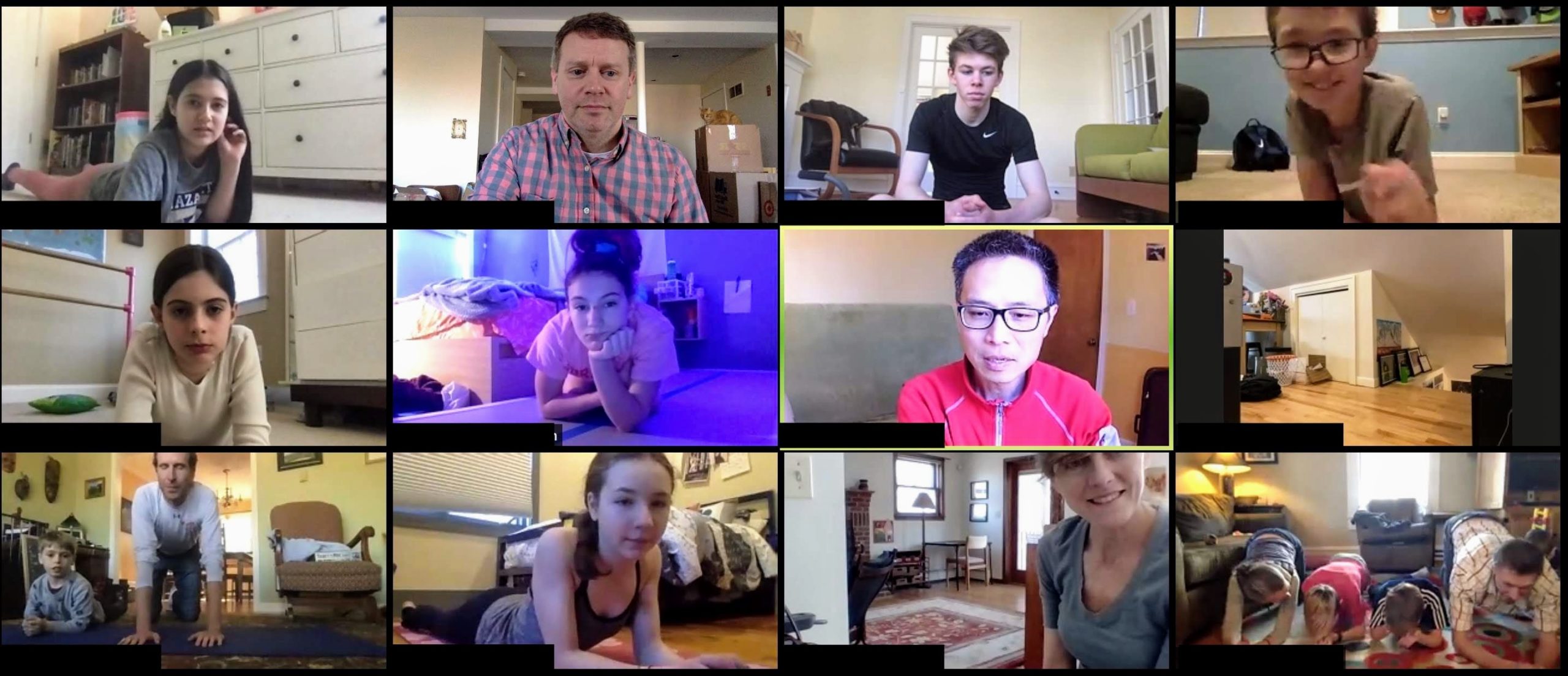Disruptive Innovation
May 9, 2020

9 May 2020
Disruptive innovation.
This term was all the rage over the last several years. I remember when Jasmine and I went to the NAIS conference in Boston back in 2015 and there were tons of sessions on the power of educational innovations that completely disrupted the norm. Shake things up. Work to make schools and classrooms intentionally as different from what they would have been like 100 years ago as possible. While this was speculative and cutting edge at the time (tons of books, articles, and speakers on the circuit), I bet none of them had this kind of disruption in mind, nor the incredible level of innovation undertaken by teachers and students these days. Flipped classrooms, blended learning, asynchronous instruction–what those folks were trying to summon into existence through talks and texts have come to pass so thoroughly and prolifically, they seem normative, not innovative.
At the same time you may have come across the wonderful op-ed pieces, short films, and talks circulating in the last couple of weeks about the silver lining of social disruption; how we’re all being forced to reconsider globalization, multinational commerce, travel, consumption, meat. The meaning and value of money. The significance of family. The place of screens. Time and the pace of things. Risk. This question of what really matters, and what is really “worth it” to us. Like it or not, the disruption is making all of us think, and as an educator, I see that as a good thing.
It’s pushed us, particularly as we look to the final five weeks of the school year to ask ourselves what really matters at Vermont Commons. Ben Wang, when he and his team were exploring the possibility of some version of E-Weeks (now called “Encounter X,” short for Encounter Experiences, taking place May 21-22), they identified that students getting to see and learn with others from different grades and teachers they don’t normally learn from was the top priority. As we’ve been looking at the end of year, both the faculty and the students have felt the need for a form of our traditions to carry on, from exams to Field Day to walking sticks at graduation. Connecting with each other and being true to who we are and how we do, both in the spirit of dedicated work and dedicated joy and fun, is our core. You can disrupt. You can innovate. But at the end of the day, our teachers know our students, connect with them deeply, and rely on each other to build up the world together. If you want to know what we’ve learned–or been reminded of most acutely–in the last two months, it’s that the regular, ongoing, personal interaction between our educators and our learners is the sine qua non of Vermont Commons. You can throw whatever you want at that–weather, pandemic, recession, it doesn’t matter. It’s bedrock, it’s sustaining, and it endures.
I know these times are hitting you hard, some of you harder than others. We are here to help with the academics and the emotional support everyday. But as you have seen recently, we are also turning over every stone to build up an Emergency Financial Aid fund, to help families who are in financial crisis as a result of Covid-19 keep their children at Vermont Commons School. I’ve begun reaching out to every VCS family, but if you are hitting tough times and unsure about your child’s future here, please don’t wait for me to call. Reach out to me. Because that tight community I was talking about, it includes every single one of you as well. You are part of that sustaining bedrock, and together we will endure.
Dexter P. Mahaffey, Ph.D.
Head of School